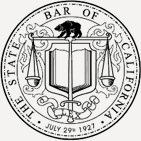 After the subprime meltdown, sweeping legislation was enacted in an effort to protect Californian homeowners. HBOR cases have since trickled in over the last seven years with a new one regarding fees for borrowers who successfully halt a foreclosure sale with a temporary restraining order.
After the subprime meltdown, sweeping legislation was enacted in an effort to protect Californian homeowners. HBOR cases have since trickled in over the last seven years with a new one regarding fees for borrowers who successfully halt a foreclosure sale with a temporary restraining order.
1. A Prevailing Borrower Is Entitled to Attorney’s Fees After Obtaining a Temporary Restraining Order.
After the Monterossa case in 2015 which held that HBOR provided for award of attorney fees and costs when a preliminary injunction issues, it was logical to then wonder if the same would apply after the borrower obtains a TRO. A TRO is an early court order, one that is obtained on a one day ex-parte notice. It is often difficult for a loan servicer or lender to mobilize in time to oppose a temporary restraining order.


 Owners who take title via a foreclosure sale must perfect their title before beginning eviction proceedings. This may seem obvious, but the issue was unresolved in California until just a couple of weeks ago.
Owners who take title via a foreclosure sale must perfect their title before beginning eviction proceedings. This may seem obvious, but the issue was unresolved in California until just a couple of weeks ago.  California real estate brokers are required to have a written contract with their clients to list a property for sale. A real estate commission is usually a percentage of the transaction, and with multi-million dollar San Francisco Bay area real estate values, the commission is often five or six figures.
California real estate brokers are required to have a written contract with their clients to list a property for sale. A real estate commission is usually a percentage of the transaction, and with multi-million dollar San Francisco Bay area real estate values, the commission is often five or six figures.  In California, real estate often has multiple owners due to investment structure or inheritance of family property.
In California, real estate often has multiple owners due to investment structure or inheritance of family property. After the subprime meltdown, California enacted the Homeowner’s Bill of rights (HBOR) to amend the non-judicial foreclosure processes. Among the changes were to bar “dual-tracking” and require a 30 day pre-foreclosure communication period. Those changes sunset in 2019. SB818 reinstates certain provisions of the HBOR and Governor Jerry Brown signed the bill a few weeks ago. Most of the bills signed will go into effect Jan. 1, 2019. [
After the subprime meltdown, California enacted the Homeowner’s Bill of rights (HBOR) to amend the non-judicial foreclosure processes. Among the changes were to bar “dual-tracking” and require a 30 day pre-foreclosure communication period. Those changes sunset in 2019. SB818 reinstates certain provisions of the HBOR and Governor Jerry Brown signed the bill a few weeks ago. Most of the bills signed will go into effect Jan. 1, 2019. [ Parents' creditors failed to reach tuition payments made directly to their child's university in the recently published case of Lo v. Lee (Jun 27, 2018). This case is one the first decisions analyzing the The Uniform Voidable Transactions Act (Civ. Code, § 3439 et seq.) (formerly the Uniform Fraudulent Transfer Act).
Parents' creditors failed to reach tuition payments made directly to their child's university in the recently published case of Lo v. Lee (Jun 27, 2018). This case is one the first decisions analyzing the The Uniform Voidable Transactions Act (Civ. Code, § 3439 et seq.) (formerly the Uniform Fraudulent Transfer Act).




